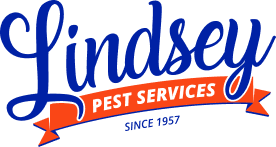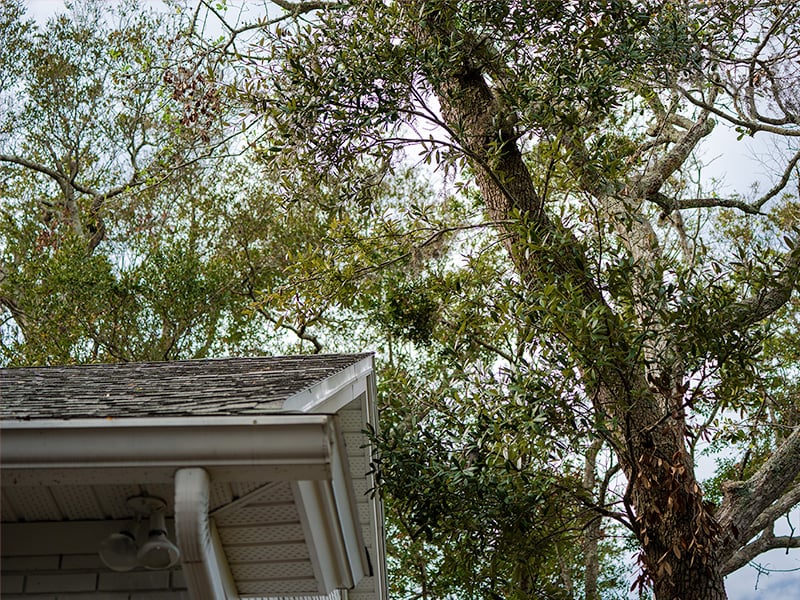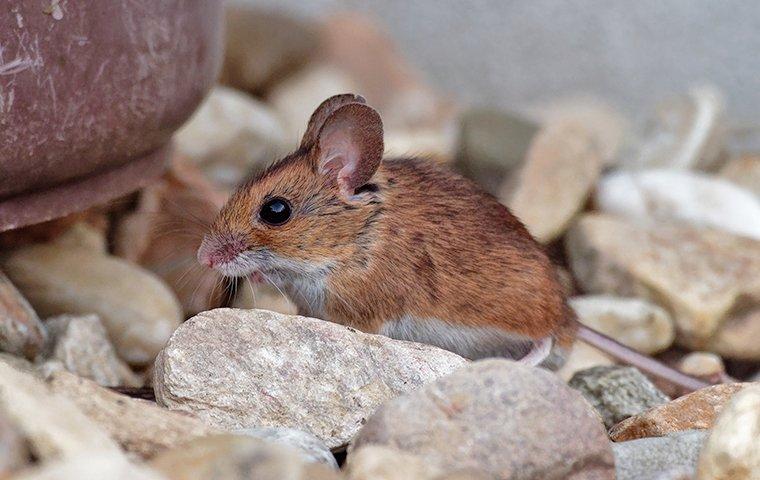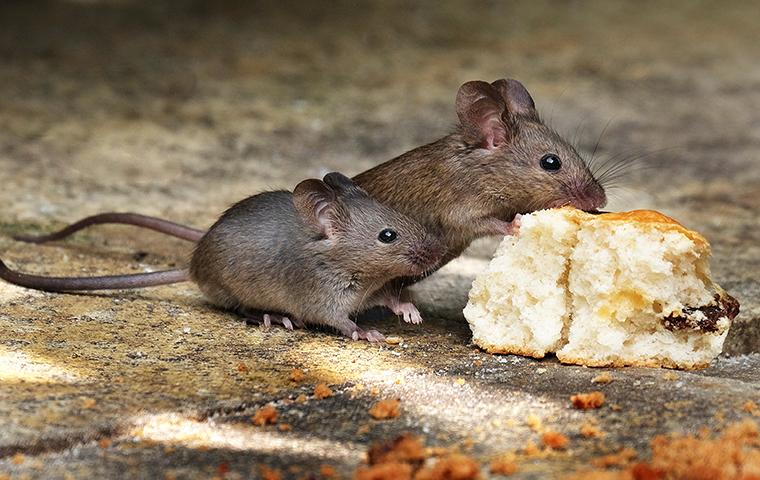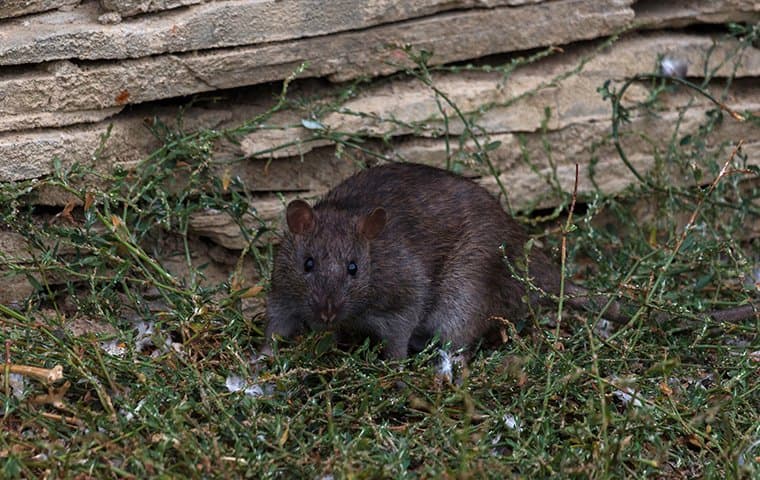How To Keep Rodents At Bay: Tips For Effective Rodent Control For Jacksonville Homes
Life is full of surprises. For example, you come home after a long day at work, eat dinner, and relax in your favorite chair to read a book. As you read in silence, you hear scratching sounds emanating from the walls. At first, you try to rationalize what you hear, but as it continues, you realize you have rodents in your house.
When you suspect rodents are living in the basement, crawl space, attic, or walls, you need Jacksonville rodent control services from Lindsey Pest Services. We are a local pest control company serving the Jacksonville area for over 60 years. Our leaders, Jennifer Leggett and her husband, Dr. Claude Thomas, are well-known international speakers in the pest control industry. Through their leadership, Linsdey Pest Services has earned the coveted QualtiyPro Certification, an honor that only 3% of pest control companies hold nationwide. This certification guarantees that we have met and exceeded 15 local, state, and national regulations, have background-checked employees, and maintain a drug-free workplace. Our employees are highly trained and certified in their areas of expertise.
Now that you know a little about us, we want to help you end the rodent infestation in your home, so keep reading to learn more.
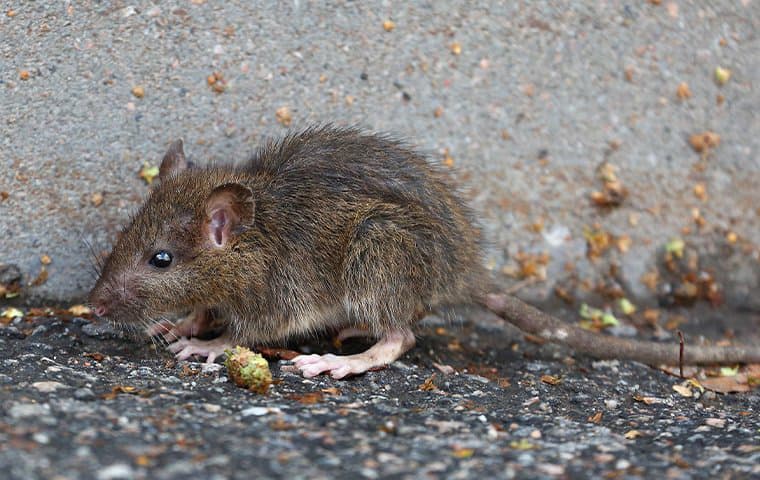
Common Rodent Species: Identifying Different Types Of Rodents
Rodents are warm-blooded mammals with fur, four legs, two eyes and ears, and a tail. Although that general description could fit a household pet, the distinguishing feature is a pair of upper and lower incisor teeth. Some rodents use their teeth to cut through roots as they burrow in the yard (e.g., voles), others use them to cut down small trees (e.g., beavers), while others use them to access nuts (e.g., squirrels).
From a pest control perspective, we classify some rodents as "wildlife" because they avoid humans. However, there are other rodents, known as commensal rodents, that do not mind sharing space with people, and those are the ones that cause most Jacksonville homeowners problems.
The following is a list of the commensal types of rodents we find in Jacksonville homes:
- Norway rats
- Roof rats
- Deer mice
- House mice
- Squirrels
While these animals have ever-growing incisor teeth in common, each species differs in habits, behaviors, and characteristics. To help you identify the rodent causing problems, please keep reading to learn more.
Moving a cabinet and having a rat run between your feet across the floor is jarring. When that happens, everyone screams and attempts to jump onto a chair. Norway rats have a 7 to 9 1/2-inch round body (not including the 7 to 9-inch tail) covered with brown fur interspersed with black hairs on the topside. These rats have a blunt muzzle, small ears and eyes, and a grey or white belly. Norway rats are social creatures, which means they live with or near other Norway rats. When they invade a Jacksonville home, they migrate to the basement and lower floors (although they can invade attics). Known also as street or sewer rats, Norway rats forage for food at night and will consume just about anything but prefer meat, fish, cereals, and dog food.
Roof rats have a slightly smaller 6 to 8-inch slender body with a scaly tail of the same length. They have large ears and eyes and the same body color as Norway rats, but some have a black belly. As their name suggests, roof rats are excellent climbers that use tree and shrub branches to access the attic and upper levels of a home. Like Norway rats, roof rats are social and nocturnal creatures; they eat just about anything but prefer vegetables and fruits.
Like rats, mice are nocturnal and consume anything they find, but they are smaller and more curious than rats. Deer mice are so-named because their brown fur, white feet, and belly resemble that of a deer. From head to tail, deer mice are 5 to 8 inches long. One way to distinguish deer mice from house mice is their half-brown, half-white, bi-colored tails. These mice live outdoors underneath decks, in tree hollows, log piles, and old fence posts. When they invade a Jacksonville home, they live in garages, basements, and attics in storage boxes, wall voids, and tight spaces.
The most common rodent we find in Jacksonville homes is house mice. These rapidly reproducing rodents are 2-1/2 to 3-3/4 inches long and have a 2-3/4 to 4-inch tail. They have a dusty grey to light brown round body and a cream-colored underside. House mice prefer to live inside structures, and when they invade a house, you will find them in dark, secluded areas in nests constructed from fabric, insulation, paper, and whatever materials they can find.
We see squirrels scurrying about in our yards. These rodents have a 6 to 15-inch body with a bushy 4 to 14-inch tail. Of course, when you watch squirrels, it is apparent they are excellent climbers and like to eat nuts. Although squirrels prefer to live in trees, they sometimes invade attics in the winter.
Lindsey Pest Services can remove any Florida rodent that is causing problems.
Health Risks Of Rodent Invasions: Protecting Your Family And Pets
Rats and mice pose health risks to individuals in a home. Unlike squirrels that forage in trees and yards, rats and mice search for food in warm, humid locations like sewers, drains, trash and compost piles, and around animal feces. While these unsanitary environments contain decaying plant and animal matter that rodents eat, they are Petri dishes for bacteria, viruses, and parasitic worms.
Rats and mice have oily fur, and as they move through these areas, disease-causing organisms stick to their hairs. Furthermore, when the rodents consume the rotting materials, they also ingest the pathogens on the items. Later, when rodents enter Jacksonville homes, they bump against objects and contaminate them with infectious organisms. Rats and mice also spread bacteria and viruses through their urine, feces, and saliva as they travel across cooking and eating surfaces, inside cabinets, and pantries.
Norway and roof rats can spread leptospirosis, rat-bite fever, tularemia, salmonellosis, jaundice, cowpox virus, and trichinosis to household members when they use contaminated items or interact with rodents. House and deer mice spread some of the same maladies; deer mice can spread the virus that causes hantavirus pulmonary syndrome. Most diseases cause flu-like symptoms and may require medical attention, but hantavirus is potentially deadly.
Rodents in a home can trigger allergic reactions and asthma attacks when their feces dry and particles flake away and become airborne. When individuals with allergy sensitivities inhale the floating fecal matter, it can trigger a runny nose, cough, difficulty breathing, and other symptoms common to these conditions.
Lindsey Pest Services protects your family's health by providing effective rodent control for your Jacksonville home.
Rodent Exclusion Tips: Safeguard Your Property from Infestations
Rodents are a necessary part of our ecosystem; no matter what we do, they are here to stay. While no one can prevent a rodent from traipsing across your yard at night or climbing the trees around your home, you can do the following to deter rodents from staying on your land and entering your home:
- Provide drainage to gutters, ditches, and puddles.
- Prune tree branches and shrubs away from the house.
- Cover outdoor garbage containers and compost piles.
- Relocate firewood piles 20 feet from the house and elevate them.
- Remove junk, debris, and overgrown vegetation from the yard.
- Pick up rotting fruit and animal feces on the lawn.
- Cover the attic and crawl space vents with wire mesh.
- Seal gaps and cracks in the foundation, roofline, and frames.
- Install door sweeps on exterior doors.
Implementing these rodent prevention tips will discourage rodents from hanging around your home. When a certified technician from Lindsey Pest Services inspects your home, we can provide additional suggestions for your location.
Professional Rodent Control: Why Expertise Matters
When you want rodent removal, do you want a start-up pest control company or one that has been serving the area since 1957? When you contact us, we dispatch a highly trained technician to your Jacksonville home to inspect your property. We search for signs of a rodent infestation, entry points, attractants, and the type of rodent in your home.
Based on our findings, we strategically install mechanical traps and rodent monitoring stations on your property. We cover crawl space vents and provide additional exclusion services to prevent rodents from reentering your home. When there is a strong odor due to dead rodents, our odor removal services can remove the smells; we can also clean up infested areas. Although all rodents can physically damage wiring and objects in a home due to their continual need to gnaw, squirrels can be particularly harmful to insulation and ductwork. In situations with physical damage, we can work with you to find a contractor to make the necessary repairs.
If you need rodent control in Jacksonville, there is no better company than QualityPro Certified Lindsey Pest Services. Contact us today to learn about our rodent control services and to schedule your free inspection.
Get Your Free Pest Control Quote Today!
Complete the form below to get started with your free, no-obligation quote, and a Lindsey Pest representative will contact you shortly.
Same Day Service Available!
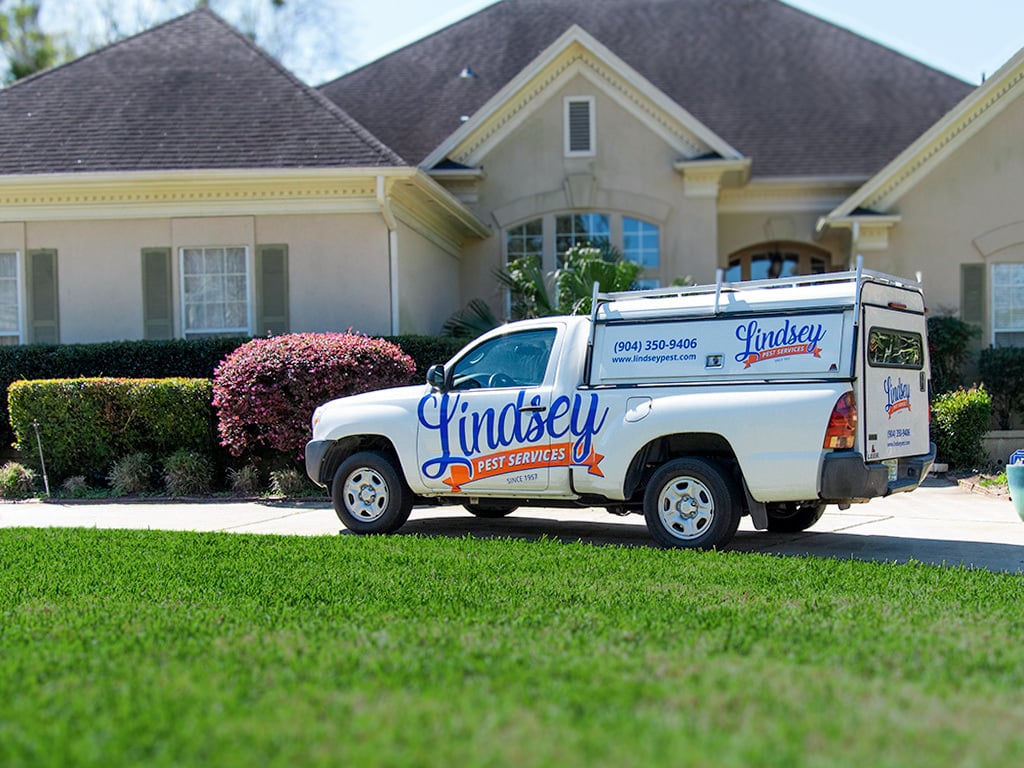
Blog Posts
